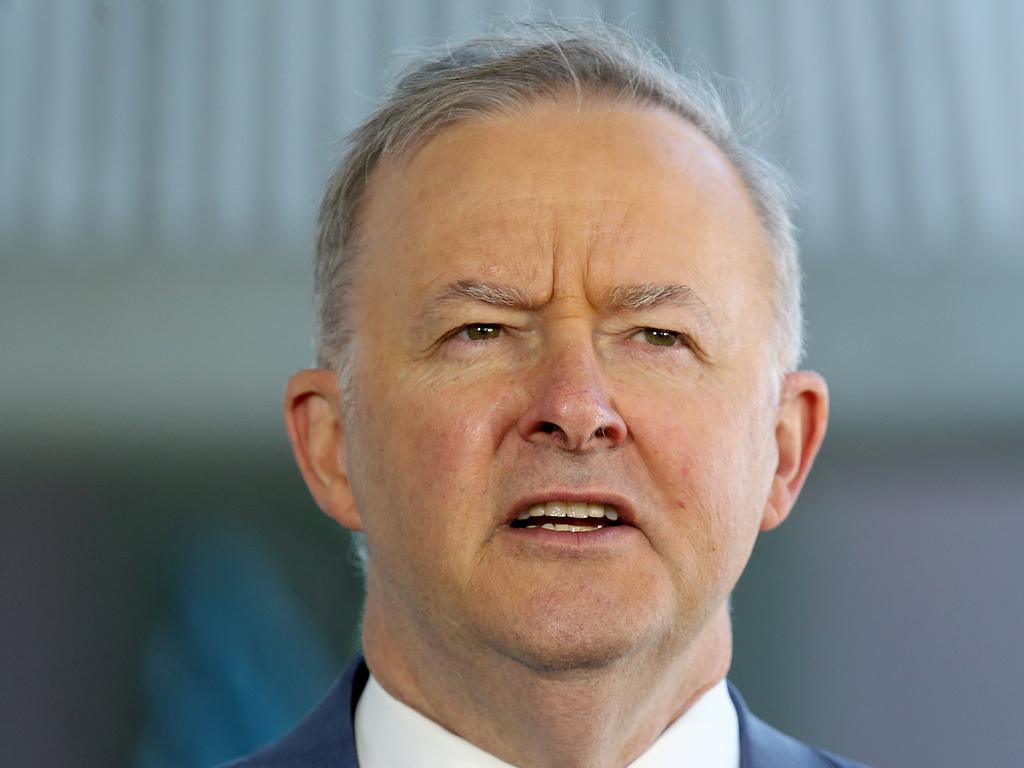Uluru Statement is not just right, it is inevitable

In my time as treasurer and minister for Aboriginal affairs in the first McGowan government in Western Australia, I observed two counteracting forces that shaped the politics surrounding First Nation peoples. The first is the rapidly growing support for structural recognition of First Nation peoples within the institutional and legal architecture of our nation. The public and corporate response to the tragedy of Juukan Gorge convinced me that there is community appetite for a substantial resolution of modern Australia’s history.
The second is the political infrastructure – individuals and organisations – which are impeding progress on constitutional recognition of First Nation peoples. Since John Howard first proposed, in 2007, that there should be referendum question about recognising First Nation peoples in the Constitution, the nation has been stuck in a quagmire of inquiries and consultations, and, five prime ministers later, there remains no clear resolution about what that question should be.
Constitutional recognition is fundamentally important to First Nation peoples. It is beyond symbolic. For First Nation peoples, inclusion in Australia’s founding document is recognition of our heritage and ongoing connection to the Australian continent and surrounding islands dating back tens of thousands of years.
Unquestionably, the most important use of the commonwealth’s power to make laws for First Nation peoples has been the Native Title Act, which was imposed on Australian states to ensure that First Nation peoples’ common law rights determined by the High Court in June 1992 were incorporated into Australia’s statutory land title system.
The NTA was an unprecedented intervention into state governments’ administration of land and natural resource management. Through the application of the NTA, First Nation peoples’ right to negotiate agreements about the use of their traditional country has been embedded into state governments’ management of the use and ownership of land and natural resources.
Issues surrounding native title highlight the importance of commonwealth responsibility. For First Nation peoples, the commonwealth’s constitutional power entrusted by the people of Australia in 1967 is sacrosanct. But it is the words of s51 (26) that is in question. The Report of the Expert Panel in 2012 highlighted the central issue concerning constitutional recognition. In broad summary, the report recommended that the race power, as written in 1901, and amended in 1967, should be expunged from the Constitution.
The Expert Panel recommended that in its place should be a provision that is explicit and positive in its recognition of First Nation peoples which provides the commonwealth with its constitutional power and responsibility. To protect the inherent rights of First Nation peoples, the report also recommended that a section be inserted in the Constitution, without identifying any single cultural or social group, that universal values of human rights be respected.

The Expert Panel’s recommendations were strongly opposed by an element in the conservative political parties supported by conservative constitutionalists in the legal arena. Despite a joint parliamentary committee, chaired by current federal Indigenous Affairs Minister Ken Wyatt, supporting the Expert Panel’s recommendations in 2015, the pathway to progress the two reports was seemingly blocked by a group who argued that the report’s recommendation could be a de facto bill of rights and diminish the power of parliament.
While this stalemate continued, it became obvious that broad community consensus – an accepted precondition for a successful constitutional referendum – could not be achieved.
In discussions involving some First Nation leaders and constitutional conservatives, a proposition emerged for a constitutionally empowered voice of Aboriginal and Torres Strait Islander people that would review and advise parliament and the commonwealth government on legislation and policies that affect the rights and interest of First Nation peoples. It was a neat way to recognise and empower First Nation peoples through the Constitution, and be consistent with the primacy of parliament. The proposition was discussed widely through nationwide consultations with First Nation people. Those consultations culminated at Uluru in May 2017, when 250 First Nation elected delegates from communities throughout Australia met for the four-day First Nations Constitutional Convention.
At the end of the convention, the delegates overwhelmingly endorsed the Uluru Statement from the Heart. The eloquent but prosaic statement captured the voices of First Nation people throughout Australia. It called for constitutional recognition through establishing a First Nation voice to parliament, a truth-telling process and for establishing a Makarrata (Treaty) Commission. The statement gained huge support at the community and corporate level but has been stifled at the national political level.
What is very clear is that issues concerning the relationship between First Nation people and the Australian nation can be permanently resolved only with a broad political consensus. Opposition to native title has waned as industry has come to see the benefits of dealing with legally empowered traditional owners with cultural authority.
It is this experience with native title that should provide politicians of all stripes with confidence that the Uluru Statement from the Heart provides the nation’s governments with an opportunity to resolve a range of other extraordinarily complex public policy issues.
Many of these public policy issues represent critical grievances on the part of First Nation peoples and which are increasingly being lodged in our court system. The issue that perhaps looms largest for Australia is the outstanding compensation liability for impacts on native title. The Mabo High Court judgment made it clear that governments, and some corporations, are liable to pay for the illegal acquisition of traditional owner’s property rights. As Australian law stands, the compensation liability dates from October 31, 1975, when the Racial Discrimination Act was proclaimed. The Keating government saw the issue early and offered a national compensation scheme where the commonwealth would pay 75 per cent and the states 25 per cent of compensation liabilities to native title holders.
The offer was rejected by the states, particularly WA and Queensland, which were then vehemently opposed to the Native Title Act.
There is still no national approach. Successive commonwealth and state governments have kicked this can down the road, but that luxury is rapidly closing. In 2019, the High Court, in the Griffiths case, found three components for “just terms” native title compensation – cultural loss, simple interest and economic loss, cultural loss being the most significant.
In WA, the claims for compensation are beginning to be lodged in the courts with potential for huge payouts to native title holders imposed on the state government by the courts. Once in litigation the courts can only award financial settlements. The outstanding national compensation liability is significant.
In the absence of a structured national framework for negotiated agreements concerning compensation, it is inevitable that native title compensation claims will continue to be lodged in the courts throughout Australia. Paul Cleary’s recently published book Title Fight shows that corporations that have not struck agreements with native title holders are also in the firing line for significant compensation payouts.
Although native title compensation claims are the most potent of First Nation grievances, state, territory and the national government are also dealing with claims for historic stolen wages and intergenerational impacts from forced removal from families. It is important that Australia as a nation deals with these legitimate historical grievances through a structured negotiated process leading to a comprehensive national settlement and not resort to a maze of litigation. A negotiated settlement approach is no threat to industry and governments because agreement-making is widely practised throughout Australia. And it is producing positive economic and social consequences for First Nation peoples with support from industry and community stakeholders.
This is why the implementation of the Uluru Statement is inevitable, even to the most determined of opponents. Uluru gives us the opportunity for a national framework of support to a growing practice of agreement making.
A dialogue around this approach is urgently required to inform public policy development and legislation required to pursue a settlement process that should culminate in a final national agreement of resolving the historical grievances that degrade First Nation peoples and the nation as a whole.
Uluru is, to be frank, the most efficient way to resolve these longstanding grievances.
Clearly, there is benefit of our nation’s governments advancing not just a voice to parliament – in the minimalist way proposed at Uluru – but also benefit in continuing our national reconciliation journey with a treaty or national settlement.
This approach offers a pathway to heal the scars of colonialism and provides a clear and efficient opportunity to resolve, as a nation, the many public policy issues that will otherwise dominate our court systems for decades and further cast Aboriginal people as the “plaintiffs” in a nation we feel we lost.
Ben Wyatt is a former West Australian treasurer and Aboriginal affairs minsister.






When the delegates came to Uluru and presented Australia with the Uluru Statement from the Heart, they presented our nation not just with a way to finally reconcile our history – they also presented the Australian federation with an opportunity to take on some of the more complex public policy issues that are at the forefront of Aboriginal political life.